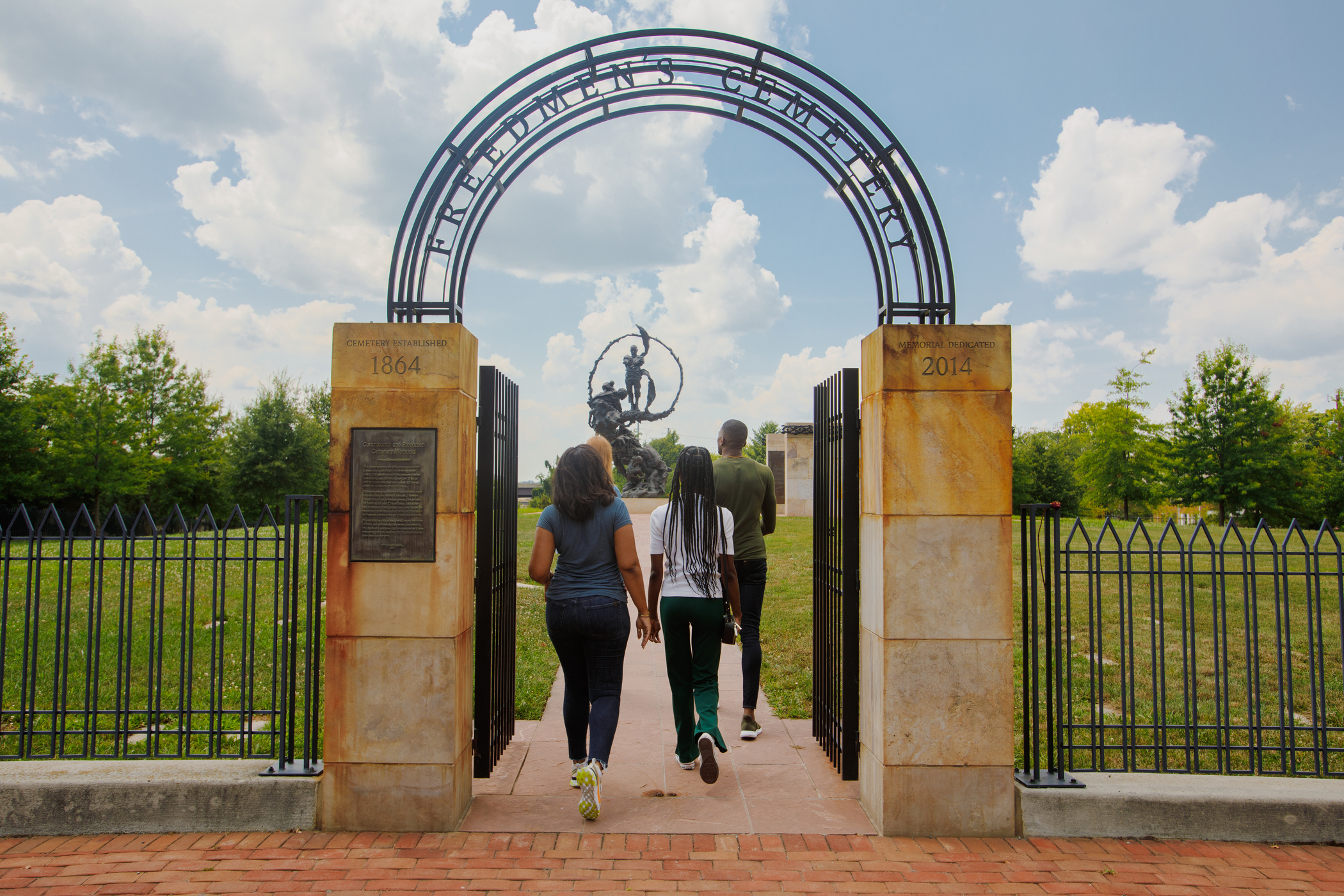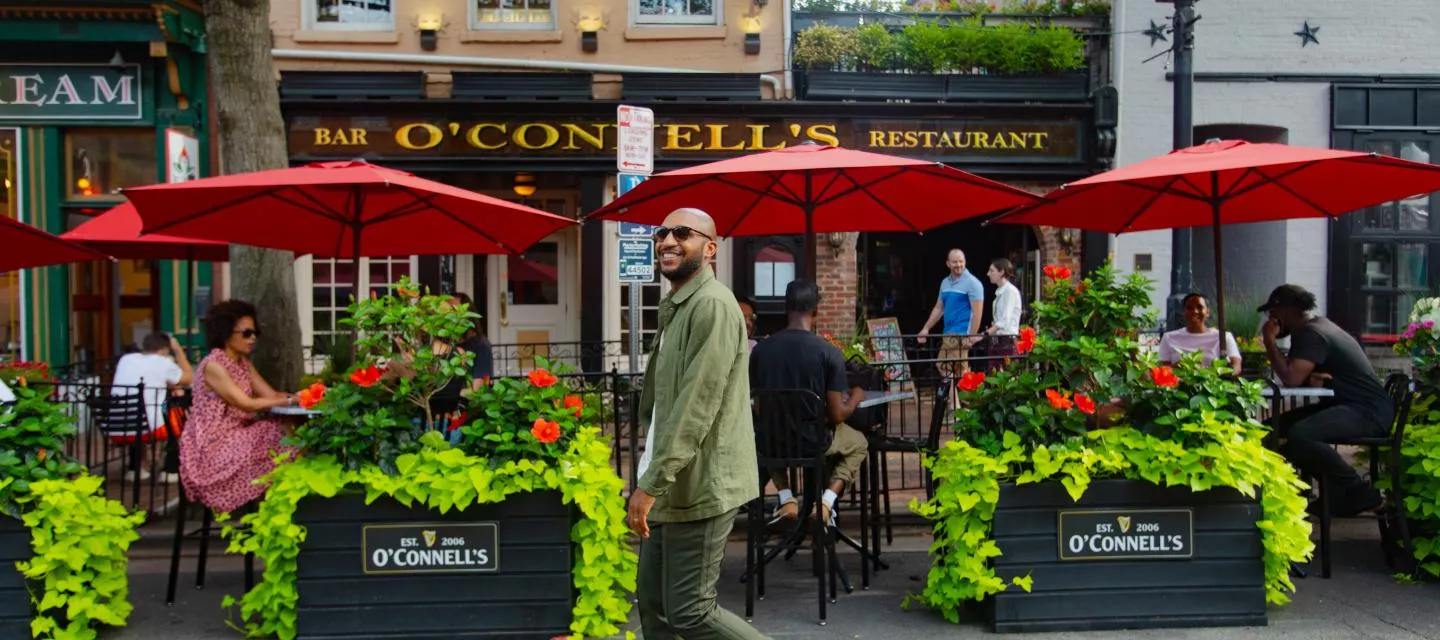Want to learn more about Juneteenth? In June 2020, Alfonso Wright, digital marketing manager for Visit Alexandria, conducted a conversation with Audrey Davis, director of the Alexandria Black History Museum. After releasing a powerful statement on the killing of George Floyd, Audrey shared the impact and necessity of Juneteenth celebrations over the centuries. In her own words, “African Americans helped to build Alexandria, helped to build this nation, and their history needs to be on par with everyone else’s.” Read on for a history of the holiday, Alexandria’s special connection with Frederick Douglass and ways you can honor Juneteenth this week and beyond.
The History of Juneteeth
Traditionally, Juneteenth—June 19th—is celebrated as the day when slavery officially ended. Yet historically, the holiday harkens back to June 19, 1865, when Maj. Gen. Gordon Granger and some 2,000 federal troops arrived in Galveston, Texas, to liberate the enslaved population, some two-and-a-half years after Lincoln’s Emancipation Proclamation. Throughout the Great Migration, when millions of Black Americans migrated north for opportunities to make a living, Black Texans carried this tradition with them.
Despite the holiday’s emphasis on abolition, Audrey is quick to add, “there are other ways you can keep a population down” and, indeed, continue to enslave them. Audrey points to the denial of equal pay, sharecropping’s oppressive debt cycles and voter suppression as forms of enslavement well into the 20th century (and beyond). This is one of the reasons why Juneteenth is such an important ritual to celebrate annually.
Celebrating Juneteenth Over the Centuries

“Celebrate. Educate. Agitate.” This is the slogan and call to action Audrey associates with Juneteenth. From the first celebrations among the liberated Texans, Audrey summarizes the commemorations as follows: “Celebrating the fact that there was freedom to be you and have control over your own body and your own life.” Early celebrations were especially potent reminders of the ability to own land, taking place in people’s homes or churches, sometimes with formal programs, sometimes not—but always centered around community.
Emancipation Day events in Alexandria included a celebration with Frederick Douglass in September 1894, which coincided with the anniversary of Lincoln’s preliminary Emancipation Proclamation in 1862. Alexandria’s Black History Museum has carried on the festivities for decades, from Juneteenth festivals in the 1990s to a 2019 lecture with Chaplain Barry Black, the first African American U.S. Senate chaplain. Here’s what Juneteenth has always been about, according to Audrey: “Bringing African Americans together so they never forget the horrors of slavery and they never forget to fight—and they still have to fight—to have equality in America.”
Juneteenth and Black Lives Matter
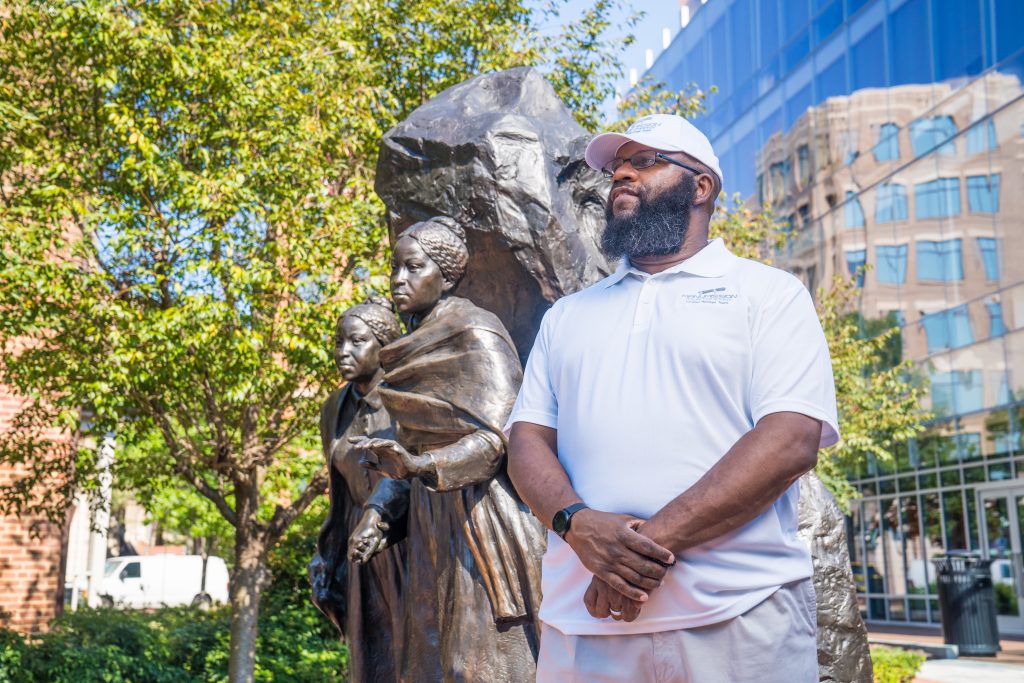
Alfonso asked Audrey about the particular significance of Juneteenth today, in light of the surging Black Lives Matter Movement. “Juneteenth symbolizes the joy of freedom and African American empowerment,” Audrey says, “but it’s also such an important celebration, especially now, because it reminds us that there is still such a long way to go.”
“This time and this movement have made people so much more aware of the inequalities people face in their everyday lives. As we often say in the African American community, ‘living while Black’ can be a very, very dangerous situation for you sometimes. So we hope that from now on and for future generations, they will no longer have to fear living while Black, and we can honor our history, celebrate our achievements, document and preserve them at the same level that you’ve seen in white institutions for years.”
At this moment of heightened awareness and action, Audrey says, “People have the renewed hope that maybe we will see really good, systemic change for African Americans and people of color in this country so that no person ever has to see another video of someone being murdered—no African American man or woman or any person of color.”
How to Celebrate Juneteenth Today
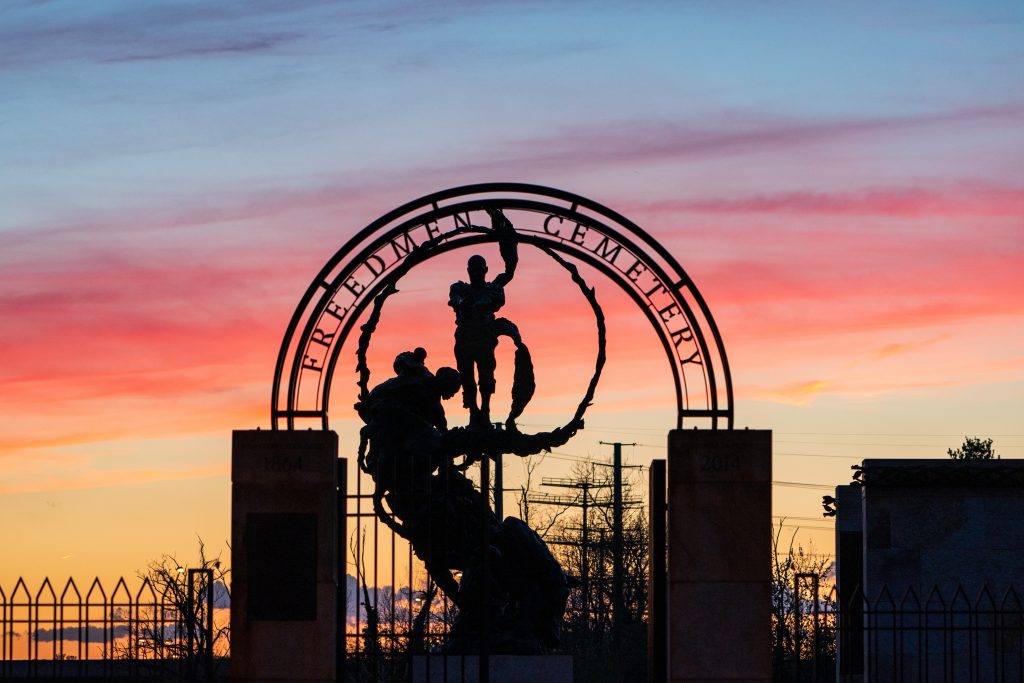
In 2021, celebrating Juneteenth will mean starting local. “We should all be looking at ways that we can help our community,” says Audrey, especially in the context of a pandemic which has particularly ravaged communities of color. Start by exploring the Black History Museum’s Preserving Their Names online only exhibition, released to coincide with the one-year anniversary of George Floyd’s murder, which features images of objects and digital photographs from the new Black Lives Remembered Collection. The exhibition documents some of the public and personal ways the local community responded to the tragic death of George Floyd on May 25, 2020, and the events of the following year, including the conviction of Derek Chauvin.
Check Visit Alexandria’s calendar for Juneteenth events, including a celebratory Juneteenth secret garden concert from Classical Movements, historical tours from Lee-Fendall House Museum & Garden and Carlyle House and more. Additionally, explore this list of Black-owned businesses in Alexandria that you can support this week and in the weeks and months to come. Start with Manumission Tour Company‘s guided walking tours, including a new Underground Railroad-themed route, to learn more about the experiences of African Americans in early Alexandria. Find more ways to dive deeper into Alexandria’s rich history with the Courageous Journey driving tour, Duke Street Black History Trail and more.
Learn More from the Alexandria Black History Museum
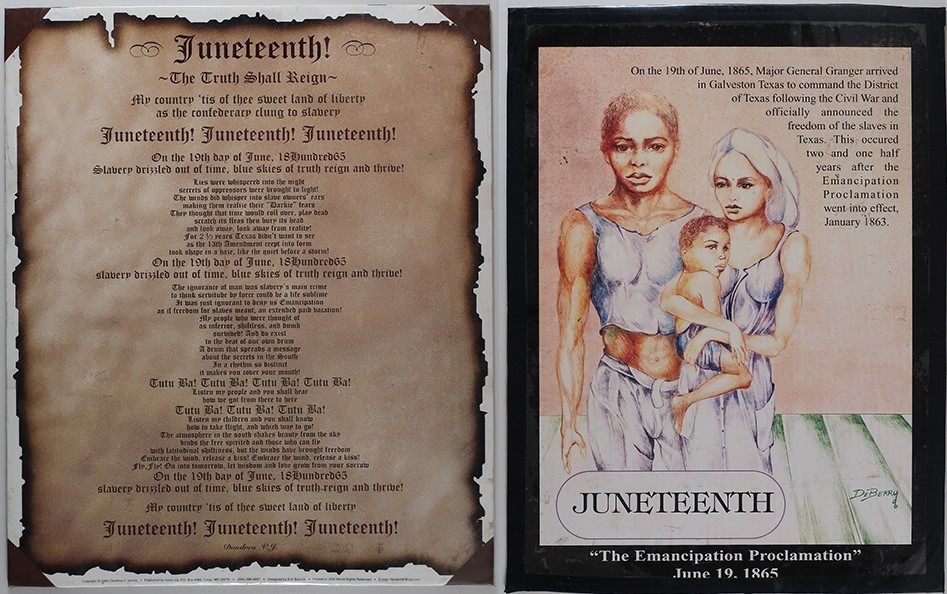
You can also fulfill the “educate” element of Juneteenth’s call to action by diving deeper into the Alexandria Black History Museum’s efforts. “Our history has been suppressed, undervalued and misrepresented. All of us have a commitment to make sure we preserve the African American story,” Audrey explains. “If it hadn’t been for smaller museums like the Alexandria Black History Museum, we wouldn’t have the National Museum for African American History and Culture.”
Despite its temporary closure, the Alexandria Black History Museum is forging ahead with its mission. Visit the museum’s webpage for more updates and online learning opportunities. Stay tuned as the museum pioneers Alexandria’s Equal Justice Initiative Community Remembrance Project to highlight the city’s lynching history, including a permanent marker to honor Benjamin Thomas, in addition to the marker for Joseph McCoy, installed in April 2021.
Audrey’s team is also gathering and publishing online the collection of Carlton Funn. A Black Alexandria educator in the 1950s and 60s, Funn found himself teaching from the same textbook that he had learned from–a textbook propagating the “happy slave” myth, painting over the brutal reality of slavery with images that would make you think, as Audrey notes, that the enslaved individuals “were getting ready to celebrate a tea party.” Funn developed a collection of some 1,5000 materials dedicated to sharing Black history and the stories of communities of color as inextricable components of American history.
When it comes to bolstering this history, Audrey Davis and her team are poised to carry on Funn’s mission.
Ready to delve deeper into the city’s history? From historical walking tours to outdoor memorials to public artwork, explore the legacy of Black Alexandrians here.
Header Image Credit: Adedayo “Dayo” Kosoko for Visit Alexandria
